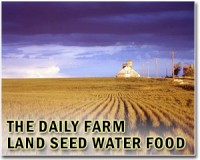 |
Venice, Louisiana (AFP) May 2, 2010 With a massive oil spill threatening their livelihoods, dozens of anxious fishermen sat outside a coastal Louisiana high school Sunday waiting for a chance to get trained to work on the cleanup. "We're trying to get some work, but too many people are looking for work," said John Chiem, 51, as he sat on a bench in the shade with two other Vietnamese shrimpers. "I might be homeless. There are too many bills and the bank could take my house." Hundreds have already attended the briefing sessions in hopes of netting work laying out protective booms or mopping up oil-soaked wetlands. There will likely be plenty of it. Nobody knows when crude will stop gushing from a deep-water well cracked open after an offshore oil platform run by British energy giant BP sank on April 22, two days after a massive explosion that killed 11 workers. The massive slick has spread to 3,500 square miles (9,000 square kilometers) -- about the size of Puerto Rico -- and an estimated 200,000 gallons are leaking into the Gulf of Mexico every day. BP -- which is responsible for the cost of the cleanup -- has hired the Public Safety Leadership Institute to conduct basic training for potential paid 'volunteers.' The interest is so high that the doors to the gymnasium are locked after the first 200 people walk through the door and two sessions are being conducted daily in Venice. Several other briefing centers have been set up in other coastal towns. "If you run across oiled wildlife you do nothing to try to capture this animal -- this animal is scared," trainer John Roquemore tells the crowd munching on donuts in the stifling hot gymnasium. It can do more harm than good to try to rescue oiled birds, animals and marine life without proper training, he stresses. So the volunteers are urged to note the location of the wildlife and report them immediately. Safety is also key, Roquemore said. "If it doesn't look right, don't do it. If it doesn't feel right, don't do it." But for many of the fishermen here, getting enough money to keep a roof over their heads and their families fed is their primary concern. Louisiana's fragile wetlands are prime breeding grounds for the fish, crab and shrimp, which support a 2.4-billion-dollar a year commercial and recreational fishing industry. Federal officials closed fishing in large swaths of the Gulf of Mexico Sunday for a minimum of ten days as a result of the spill. The next generation of catch could also get killed off as it's spawning season and oil is deadly to fish larvae. And environmentalists said it could take decades for the maze of marshes -- more than 40 percent of America's ecologically fragile wetlands -- to recover if waves simply wash the oil over miles of boom set up to protect the coast. The oil spill couldn't have come at a worse time for Louisiana, which is still recovering from the devastation of Hurricane Katrina in 2005 and decades of coastal erosion. Chiem's boat was badly damaged in the storm and it was six months before he could get it back in the water. Shrimping is not an easy life, he said. Most shrimpers head out in crews of three or four people and spend a week to ten days at sea. The waters can be rough, and so is the work, as they drag their nets through the rich waters fed by the mouth of the Mississippi River. Chiem tried going out last week when officials opened shrimping season early to give the fishermen a chance to catch what they could. But the seas were rough. The weather was bad. And Chiem came back with empty nets.
Share This Article With Planet Earth
Related Links Farming Today - Suppliers and Technology
 Louisiana 'way of life' at risk as oil spill threatens fishing grounds
Louisiana 'way of life' at risk as oil spill threatens fishing groundsVenice, Louisiana (AFP) May 2, 2010 As a sea of crude oil threatens to wash away her livelihood, Margaret Legnon stares at the boats sitting idle in the docks and wonders how long her coastal Louisiana fishing town can get by. Not to mention what all those shrimp and crab lovers in New York and Detroit and Los Angeles will do if one of the nation's largest sources of wild seafood is poisoned. "It's going to be ugly," Legno ... read more |
|
| The content herein, unless otherwise known to be public domain, are Copyright 1995-2010 - SpaceDaily. AFP and UPI Wire Stories are copyright Agence France-Presse and United Press International. ESA Portal Reports are copyright European Space Agency. All NASA sourced material is public domain. Additional copyrights may apply in whole or part to other bona fide parties. Advertising does not imply endorsement,agreement or approval of any opinions, statements or information provided by SpaceDaily on any Web page published or hosted by SpaceDaily. Privacy Statement |